Calories in Candies, chocolate, dark, NFS (45-59% cacao solids 90%; 60-69% cacao solids 5%; 70-85% cacao solids 5%)
306 calories
Serving Size 2 oz (about 57 g)
There is no photo available for this food item however it should be similar in terms of nutritional content and calorie density as the following items. You can use these for references.
(97% similar)
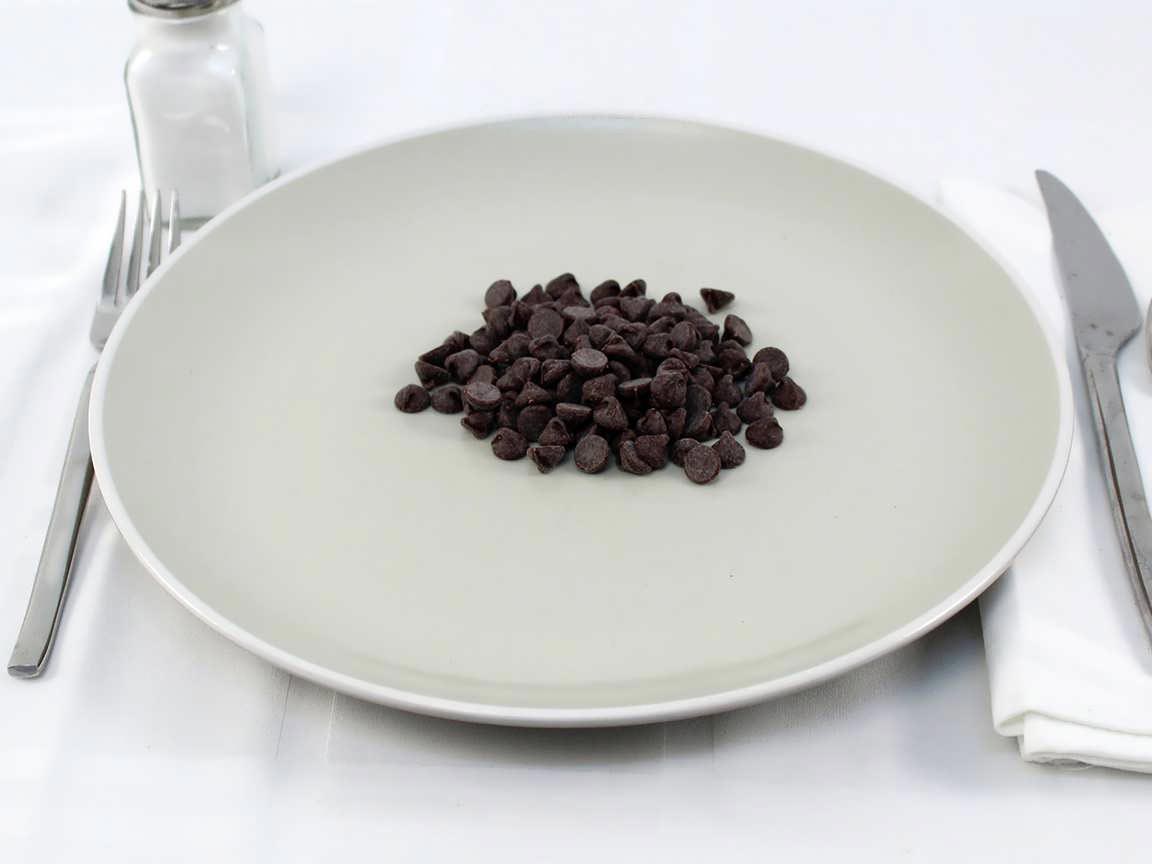
Dark Chocolate Chips
(94% similar)
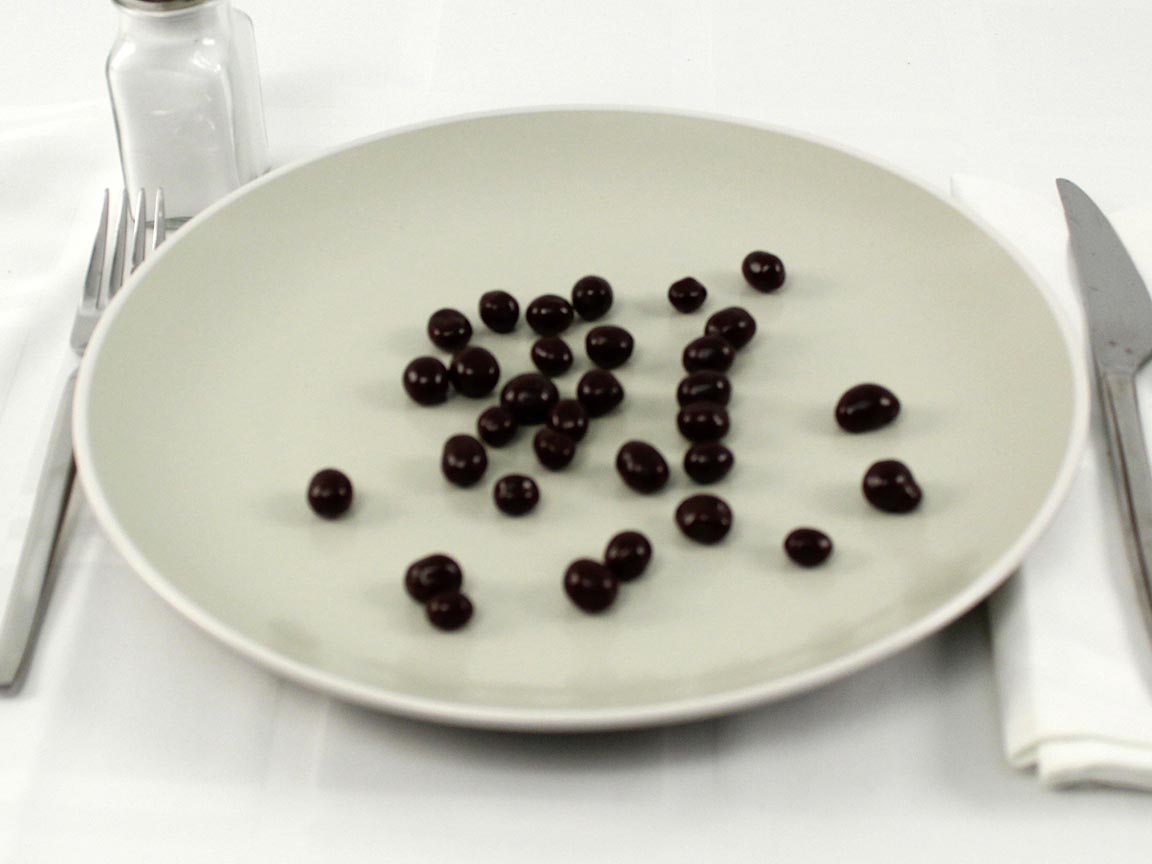
Dark Chocolate Espresso Beans
(98% similar)
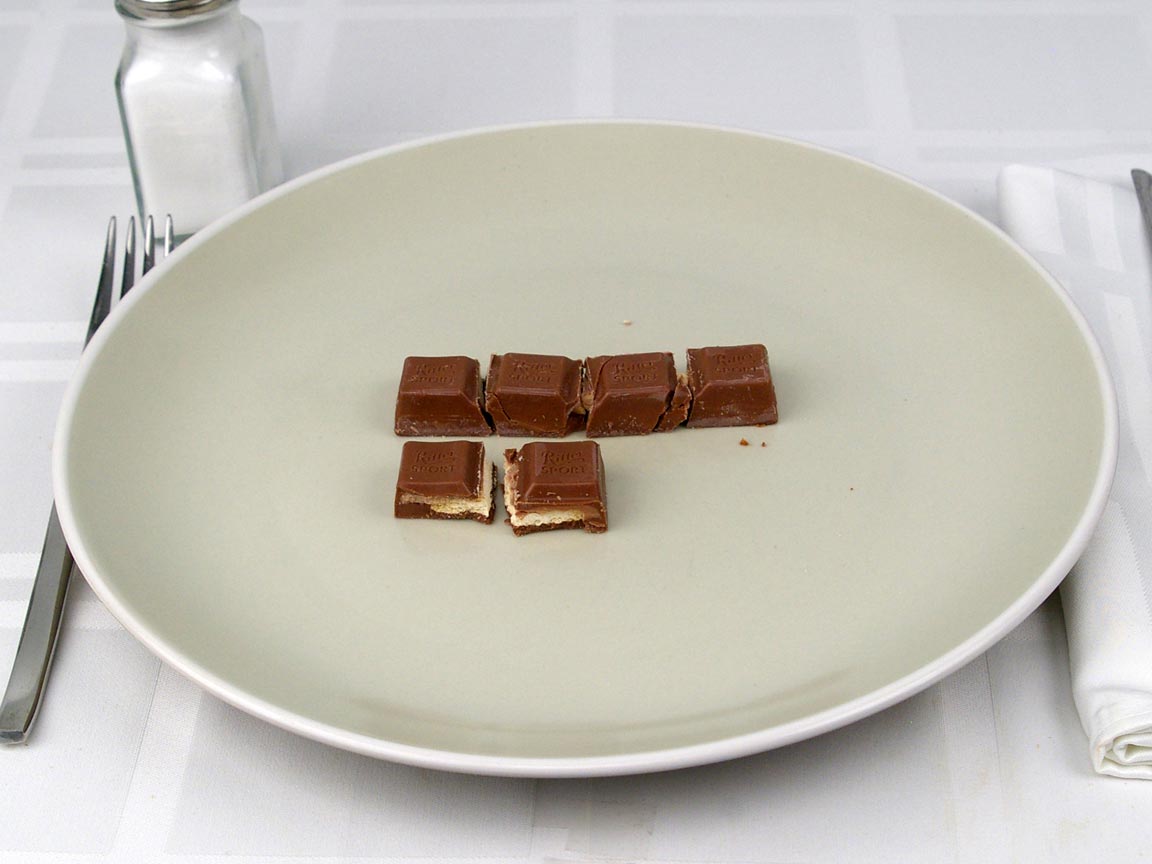
Ritter Sport Milk Chocolate Bisciut
(98% similar)
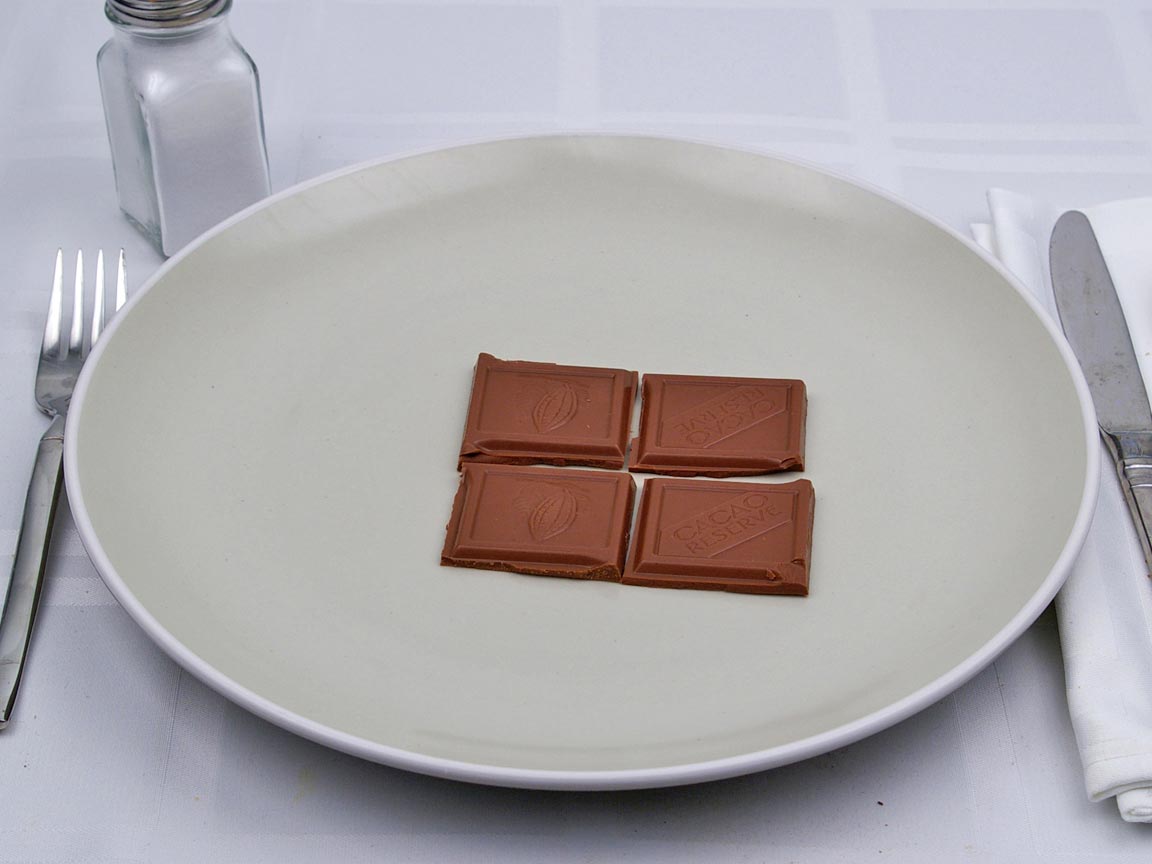
Milk Chocolate
(95% similar)
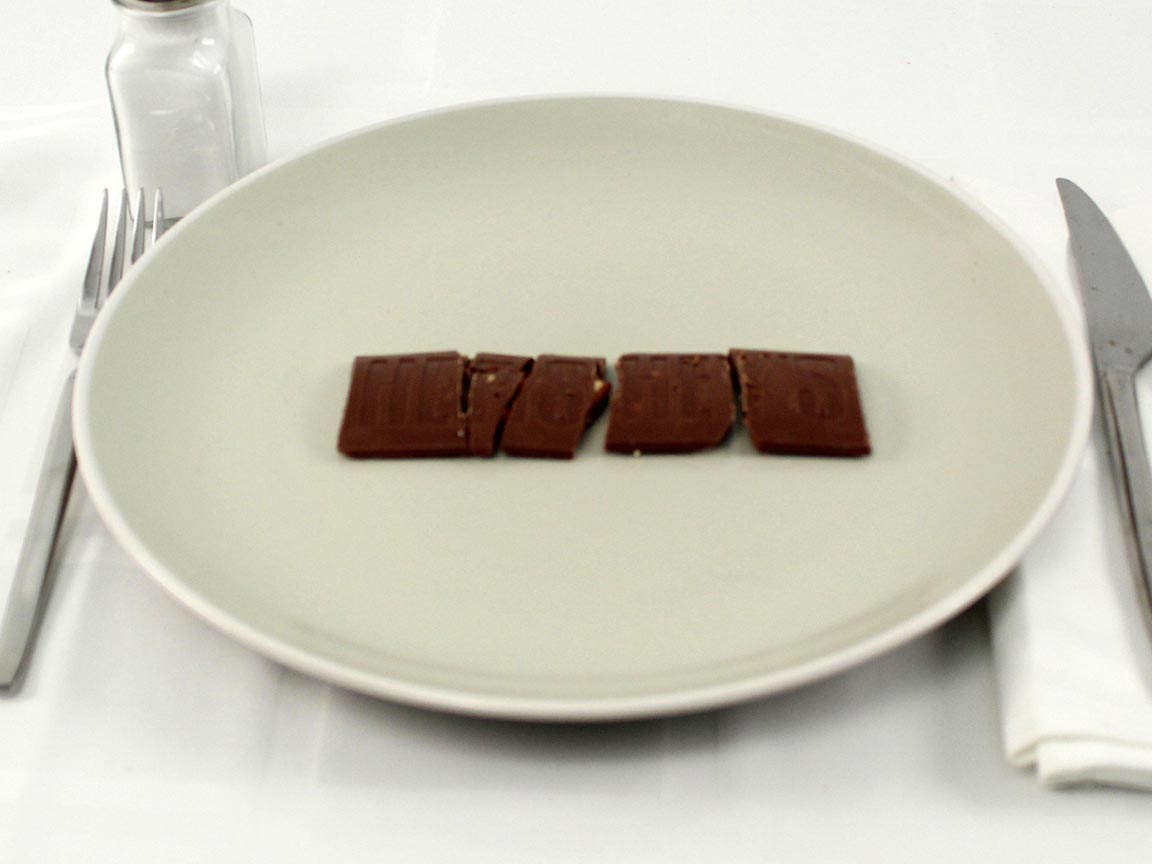
Hershey Milk Chocolate Almond Bar
(95% similar)

Special Dark - Mini
Serving Size 2 oz (about 57 g)
| Amount Per Serving | ||
|---|---|---|
| Calories 306 | Calories from Fat 164 | |
| % Daily Value* | ||
|
Total Fat
18 |
28 |
|
|
Saturated Fat
10 |
50 |
|
|
Trans Fat
0 |
||
|
Cholesterol
3 |
1 |
|
|
Sodium
13 |
1 |
|
|
Total Carbohydrate
34 |
11 |
|
|
Dietary Fiber
4 |
16 |
|
|
Sugars
26 |
||
|
Protein
2 |
||
* Percent Daily Values are based on a 2,000 calorie diet. Your daily values may be higher or lower depending on your calorie needs.
Available portions
Food analysis
High In Fiber
Junk Food
High In Sugar
Bad Fat Source
High Calorie Density
There is 306 calories in 57 grams of Candies, chocolate,.
With 544 calories per 100 grams, this food would be considered a High calorie density food.
Be carefull, High calorie density food tends to add up calories quickly and you should be carefull with your portion size if you are trying to lose weight.
Candies, chocolate, is High in carbohydrates, Very Low in proteins and High in fats. You can look at the macronutrients graph below for a detailed ratio.
It has High quantity of fibers but also High quantity of sugars. It is recomended to consume less than 25 grams of sugars per day.
This item has High quantity of carbohydrates and fats. This combinasion is usually indicating that you should stay away from this food labeled as "Junk Food".
With 52 grams of "Net carbohydrates" per 100 grams,
it not safe to consume if you are following a Keto or Ketosis diet.
Related Searches
60-69%
5%;
70-85%
5%
90%;
solids
cacao
candies
chocolate
dark
nfs
45-59%
Macronutrients split
43.4% Carbohydrates
52.9% Fats
Nutrients and how much we eat of it play an important role on our health and body composition. To learn more on theses, check our blog posts on Proteins, Carbohydrates and Fats.